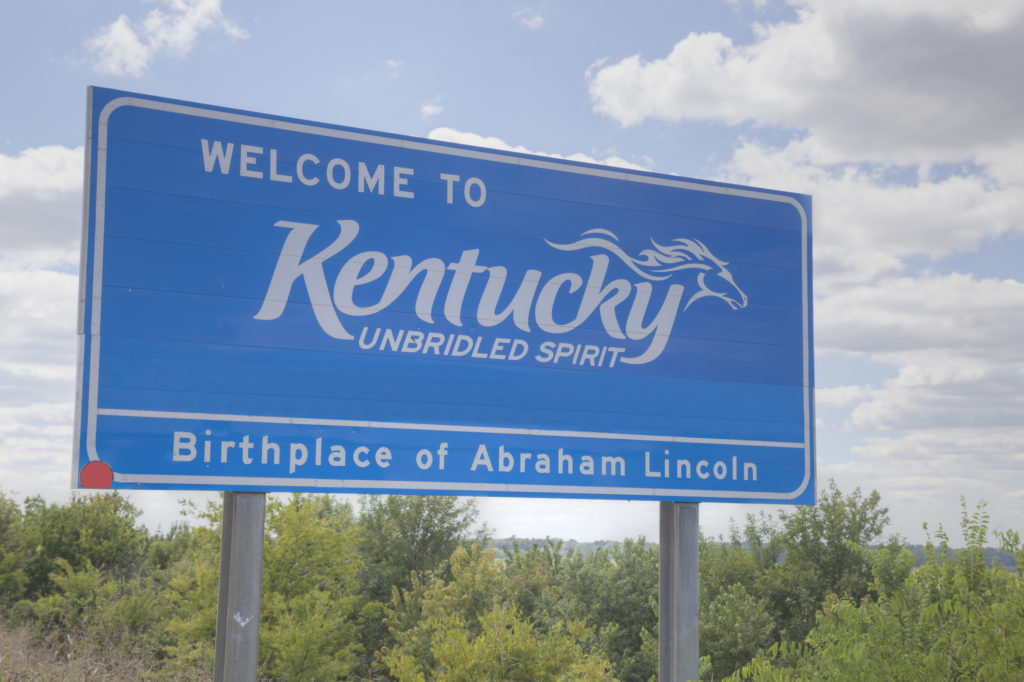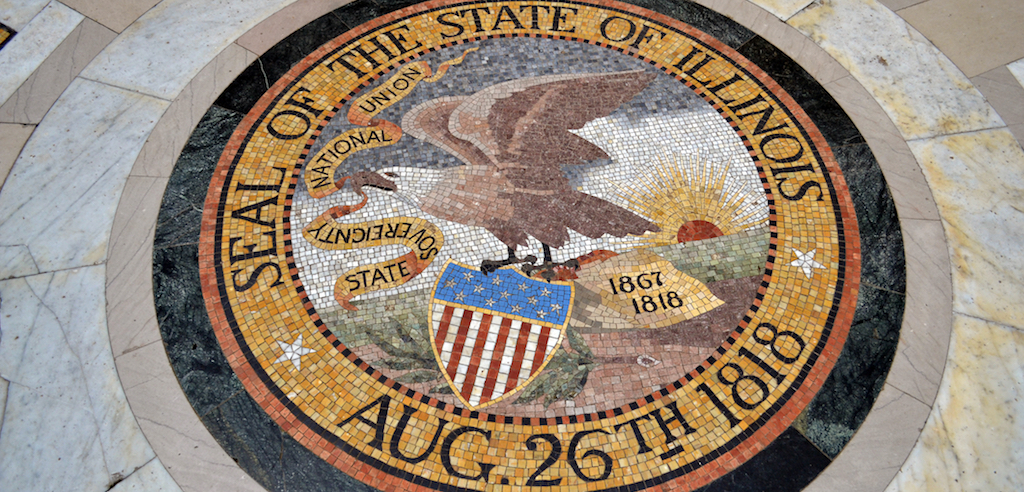US online poker players have seen some big news in recent months. Five states offer legal, regulated online poker and several others have made some moves toward legalization.
Illinois and Connecticut remain strong possibilities, but others have also at least shown some interest in the last few months. Online poker is currently legal in:
- New Jersey
- Pennsylvania
- Nevada
- Delaware
- West Virginia
Here’s a look where some of these states stand regarding online poker.

Illinois efforts at online gaming continue
The state’s House Executive Committee met in late April to consider the proposed Internet Gaming Act. The bill is co-sponsored by Reps. Robert Rita (D) and Jonathan Carroll (D).
Online Poker Report notes that the bill generally received a positive reception from lawmakers. The timeline for launch seemed the biggest concern in getting online gaming up and running.
“If there’s any remaining cause for skepticism, it’s mainly about the launch date,” OPR reports. “Although Illinois sports betting became legal in spring 2019, the first app only launched on June 18 the following year. The state is hoping for a much faster timeline from iGaming legalization to launch.”
The bill’s authors are hoping to circumvent a long launch delay. The legislation gives the gaming board 90 days to adopt emergency rules for the industry. The bill calls for issuing temporary licenses to companies already holding sports betting licenses in the state.
The IGA allows casinos and racetracks to offer up to three online gaming skins. Those properties could partner with other online gaming companies as seen in other states.
Online gaming would be taxed at 12% of gross gaming revenue with $10 million set aside to treat problem gambling. If approved, Illinois would become the sixth state to legalize online poker.
Industry experts predicted $250 million in online gaming revenue for the first year. That could reach a financial benefit of $1 billion within five years, industry experts believe.
“There’s a definite pent-up demand for iGaming,” said Brendan Bussmann, a partner at Global Market Advisors – a gaming and entertainment research and consulting firm.
While online gaming efforts appear to be going well in Illinois, poker players know that legalization efforts can easily get derailed. That’s been the case in other states recently.
Connecticut sees momentum for online gaming
Gov. Ned Lamont (D) has reached agreements with the state’s two major tribes, the Mohegan and the Mashantucket Pequot. With lawmakers and the tribes on board, iGaming (including poker) seems like it can reach the finish line this year.
State efforts to legalize online gaming also include sports betting. Some details remain to be worked out including the number of operators/skins allowed in the state.
Lamont has already included potential online gaming revenue in his new state budget. He expects the state to reap as much as $50 million in revenue by 2022.
“Our neighboring states are moving forward with sports betting,” Lamont said during his budget address to the state legislature, “and iGaming and Connecticut should not leave these opportunities for other states to benefit from our inaction.”
Indiana bill dies in committee
Sen. Jon Ford (R) introduced an online gaming bill in January which would have also included poker.
“We’re estimating between $65 to $80 million in annual tax revenue, so that certainly helps the argument,” Ford told Play Indiana. “Also, our casinos are still at 50% capacity with no food and beverage. We should want to do this bill to help the casino industry that has been down quite a bit this year.”
Despite his efforts, the bill died in committee. The senator believes that a limited number of committee sessions because of the Coronavirus pandemic didn’t help his cause.
Those in the industry remain positive about the issue’s passage next year.
“I still think there’s interest in legalizing iGaming in the legislature,” Casino Association of Indiana CEO Matt Bell told Play Indiana. “I think it’s a matter of timing, not policy. We will continue to educate lawmakers and make a great case for iGaming in 2022.”
Kentucky delays online gaming efforts
As reported by USPoker in February, online gaming efforts in Kentucky have stalled. A differing gaming issue may have played a role.
In September 2020, the state’s supreme court ruled that historical horse racing (HHR) games violated the state constitution. HHRs are slot machine-like games based on real historical races.

“Our top priority for the 2021 legislative session is maintaining the status quo to ensure historical horse racing can continue operating in Kentucky as it has for the past decade,” Churchill Downs Vice President of Communications Tonya Abeln told the Courier-Journal. “The preservation of the associated $5.2 billion economic impact statewide as well as the direct and indirect jobs of 60,000 Kentuckians impacted by HHR is now in the hands of the Kentucky General Assembly.”
The state legislature recently approved just such a bill, which was signed by Gov. Andy Beshear (D). How does this affect online gaming and poker?
With priorities shifted, an online gaming bill has been delayed. State Rep. Adam Koenig (R) introduced a bill in January that would legalize online gaming
However, the HHR issue looks to have delayed any possible passage to 2022. The state’s legislative session has now closed. But Beshear has been a supporter of expanded gaming, including online.
“This bill is on hold while we deal with a state supreme court ruling on our historical horse racing machines,” Koenig told USPoker recently. “Until that is settled no action will occur on my bill.”

West Virginia online poker remains legal, but no platforms have launched
While online poker is technically legal in West Virginia, no operator has launched. The state does have online casino gaming, but no poker yet.
Online poker needs a larger player pool, and as a rural state WV just doesn’t have the numbers to support a ringer-in market.
The good news is the recent federal appeals court ruling regarding the Wire Act paves the way for interstate compacts. The bad news is that it remains unknown it will take for that process to play out. Until then, WV poker players will be in a waiting game.
WSOP.com coming to Pennsylvania and Michigan?

Could a third operator be launching soon in both states? Rumors have swirled in recent days that a WSOP.com launch is approaching. The World Series of Poker’s online platform is operated by 888poker. On April 28, 888 Holdings CEO Itai Pazner updated the situation in a call with investors.
“We are excited about the US, where we plan to roll out sports into further states in the next few months, and launch our upgraded poker platform into further states in partnership with Caesars and their leading and hugely popular WSOP brand,” Paznar said.
“We’re planning to launch in the first half of this year, which basically means in the next couple of months.”
That would allow players in both states to compete on the platform, but likely in ringed-in environments. Unless interstate compacts are finalized, players will only compete against others in the state.
The post Legalization Update: A Look at US States Considering Regulated Online Poker appeared first on .








